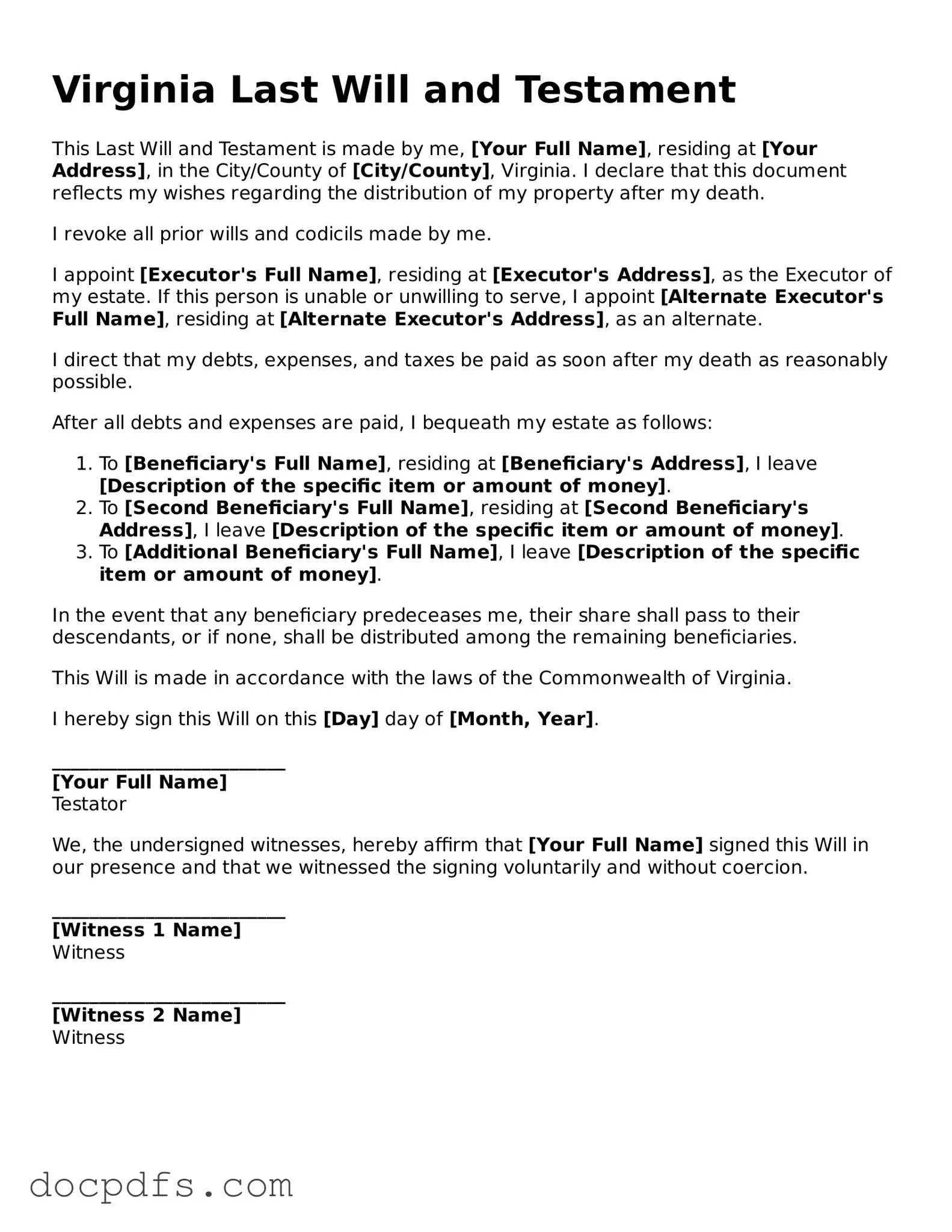What is a Last Will and Testament in Virginia?
A Last Will and Testament is a legal document that outlines how a person's assets and responsibilities should be handled after their death. In Virginia, this document allows individuals to specify their wishes regarding the distribution of property, the appointment of guardians for minor children, and the designation of an executor to manage the estate. It is essential for ensuring that one's desires are honored and can help avoid potential disputes among family members.
Who can create a Last Will and Testament in Virginia?
In Virginia, any individual who is at least 18 years old and of sound mind can create a Last Will and Testament. Sound mind typically means that the person understands the nature of the document they are signing and the implications of their decisions. There are no specific educational or professional requirements to draft a will, but individuals may choose to consult an attorney to ensure that their will meets all legal standards.
What are the requirements for a valid Last Will and Testament in Virginia?
To be considered valid in Virginia, a Last Will and Testament must meet several requirements:
-
The will must be in writing.
-
The document must be signed by the testator (the person creating the will) or by someone else at their direction and in their presence.
-
The signing must be witnessed by at least two individuals who are present at the same time. These witnesses should not be beneficiaries of the will to avoid potential conflicts of interest.
Failure to meet these requirements may result in the will being deemed invalid, which can lead to complications in the distribution of the estate.
Can I change my Last Will and Testament after it is created?
Yes, individuals in Virginia can change their Last Will and Testament at any time, as long as they are of sound mind. This process is known as creating a codicil, which is an amendment to the original will. Alternatively, a person may choose to revoke the existing will and create a new one altogether. It is crucial to ensure that any changes are made in compliance with Virginia law to maintain the validity of the will.
What happens if I die without a Last Will and Testament in Virginia?
If an individual dies without a Last Will and Testament, they are said to have died "intestate." In such cases, Virginia law dictates how the deceased's assets will be distributed. Typically, the estate will be divided among the closest relatives, such as a spouse, children, or parents, according to a predetermined formula. This process can lead to outcomes that may not align with the deceased's wishes, highlighting the importance of having a valid will in place.

